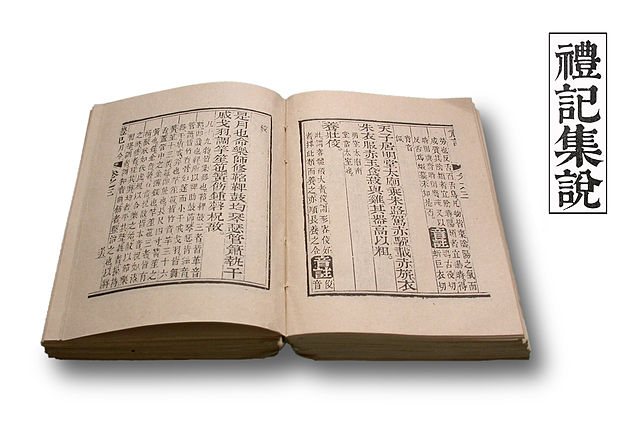KJ writes: “What’s so bad about the I Ching? Isn’t it the same thing as casting lots?”
Although casting lots for the purpose of divination is forbidden by the Church, use of the I Ching is actually much more complicated than that.
For starters, the I Ching is associated with Taoism which means that everything it teaches is rooted in the Tao, which is not compatible with Christianity. The Tao is based on a belief that all living creatures should live in harmony with the universe and the energy found in it (aka chi, qi, prana, universal life force) which is believed to be guiding everything in the universe. Of course, Christians don’t believe that the universe is guided by anything or anyone other than the Almighty, and certainly not by a non-existent energy force. To believe this would be akin to the worship of an idol.
As for the I Ching, this is an ancient Chinese book that contains sixty-four hexagrams that are used for divination and guidance. It is based on cleromancy, which is a form of divination by lots, rolling dice, picking a card, etc.
Author Paul O’Brien describes the rather complicated way of interpreting the present and the future through the use of the I Ching. He recommends using three identical coins instead of the fifty yarrow sticks which has been used since ancient times, and to assign a numerical value to heads and tails
As he instructs, before casting the coins, “stay focused on your dilemma or subject or question when casting. Hold the coins loosely in your hands, shake them briefly, and then toss them, all the while contemplating your query.”
The coins are tossed six times and the total number of each toss corresponds to a specific type of line such as an unbroken line, a line broken in the middle, a line with a circle in the middle, a line with an “X” in the middle, and so on. After tossing the coins six times and recording each line, a six-line hexagram is formed.
The caster then refers to the book to read the interpretation of the hexagrams.
Although it is mostly used for divining the future, many claim it's not really a divination tool. For example, according to this article by Thomas Ellison, MA, MPhil., “…[T]he I Ching differs from soothsaying or fortune-telling in that it has a moral dimension. It is not merely a case of being shown a card or having one’s fate revealed. Instead, one is given guidance about how to bring about good fortune and avoid misfortune. It addresses the practical matters of the moment and places the individual’s destiny in his or her own hands.”
However, Ellison appears to contradict himself when he points out that even though the I Ching claims to be "just a book," it is actually far more than that.
“It is ‘a living, breathing oracle'," he writes. "Ultimately, according to the book, those who implement the I Ching’s teachings into their lives will achieve ‘prosperity, understanding, and peace of mind’," he writes.
Some Christians argue that this is the same thing as casting lots, a process that appears often in Scripture, such as when the soldiers cast lots to divide Jesus’ cloak after the crucifixion (Luke 23:34), and when the apostles cast lots when adding Matthias to the Apostles (Acts 1:26).
As the Christian I Ching Society asserts, even though divination is strictly forbidden in the Bible (Deut 18:10) “We believe that the divination that is forbidden is attempting to predict the future. We do not use the Christian I Ching to predict the future, but to clarify what God is calling upon us to do to help create the future that God wants for all of us.”
While it is true that the casting of lots was used as a way to discern God's will in ancient times, it was always preceded with prayer to God that He might control the outcome rather than relying on their own faulty judgement. It did not rely on the I Ching to determine the meaning of the outcome!
As Catholic Answers advises, even though the study of Taoism or other religions can be worthwhile, using the I Ching as an oracle is always forbidden. The Catechism of the Catholic Church says, "All forms of divination are to be rejected: recourse to Satan or demons, conjuring up the dead, or other practices falsely supposed to ‘unveil’ the future. Consulting horoscopes, astrology, palm reading, interpretation of omens and lots, the phenomena of clairvoyance, and recourse to mediums [“channelers”] all conceal a desire for power over time, history, and, in the last analysis, other human beings, as well as a wish to conciliate hidden powers. They contradict the honor, respect, and loving fear that we owe to God alone" (CCC 2116).
They go on to advise: “If you examine your motives for consulting the I Ching, you will notice that you employ it during times of anxiety or uncertainty. It is at just those times that we need to call upon the Lord, as the Catechism says, “putting ourselves confidently into the hands of Providence for whatever concerns the future and giving up all unhealthy curiosity about it” (CCC 2115).
© All Rights Reserved, Living His Life Abundantly®/Women of Grace® http://www.womenofgrace.com

